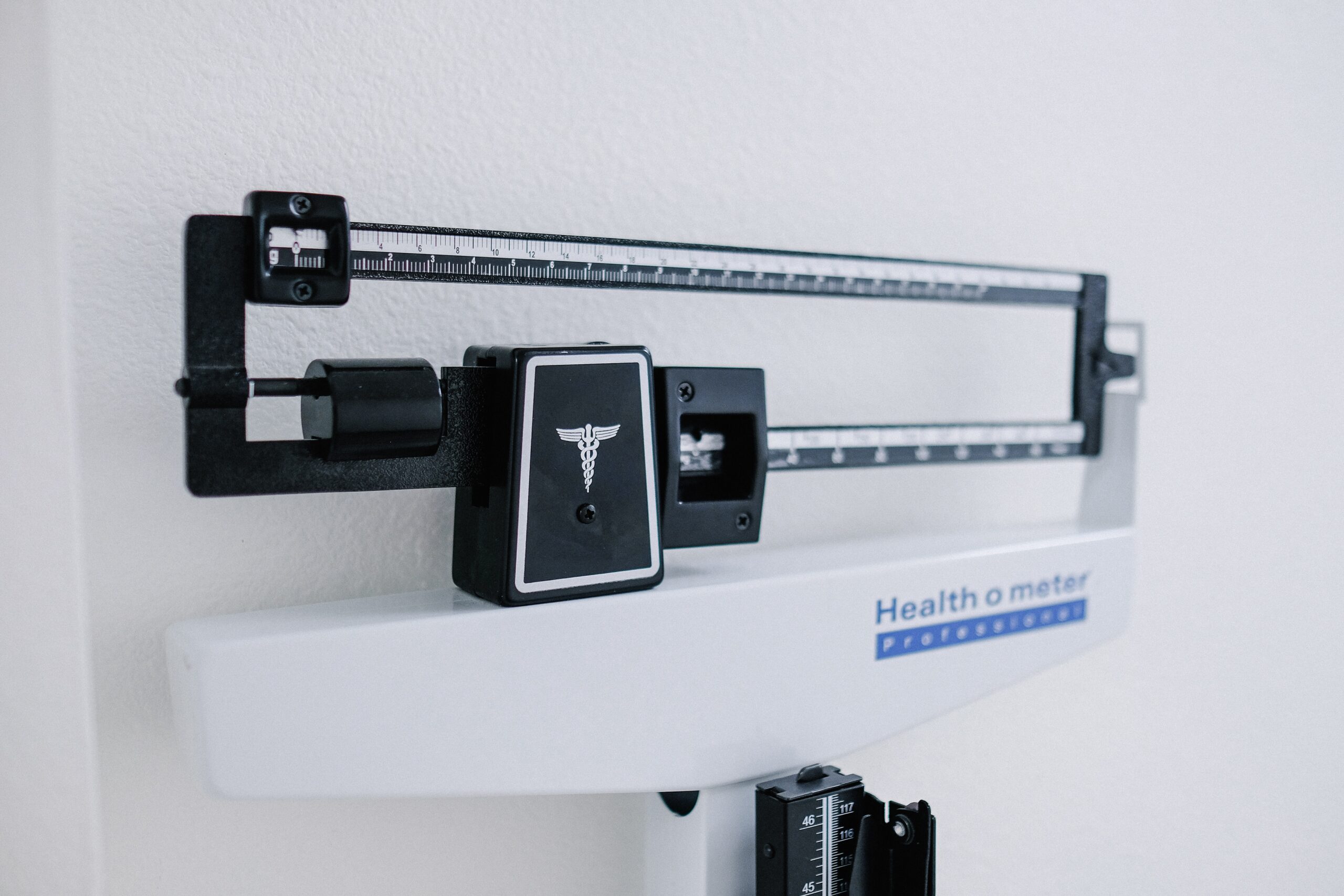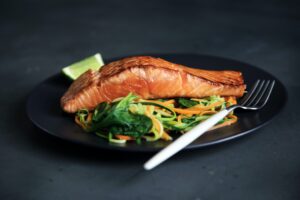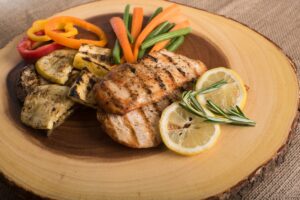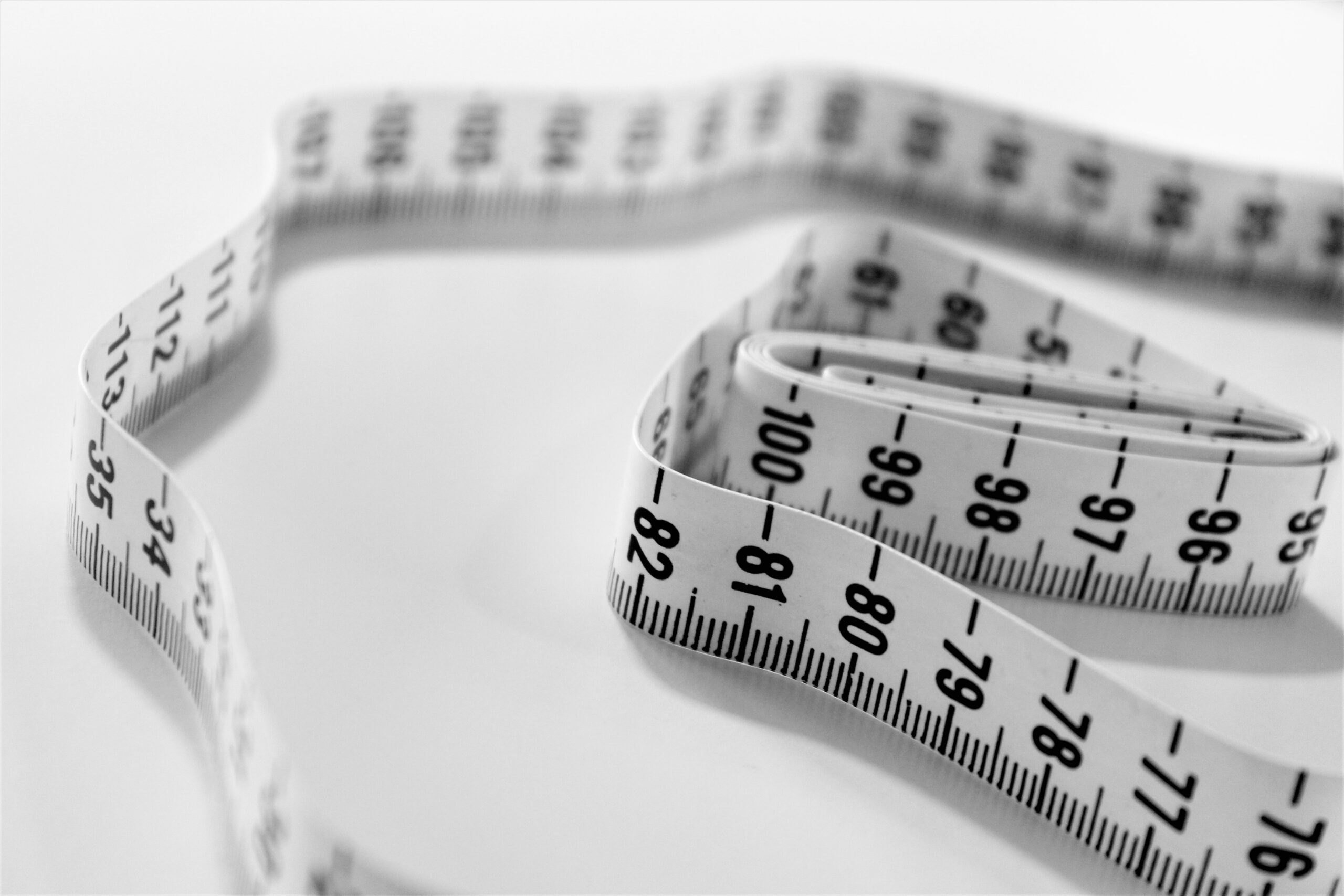5 Strategies for Successful Weight Loss

If you’ve dieted before, you’re more than likely familiar with the yo-yo dieting cycle of losing 10 pounds, gaining 15, losing 10 then gaining another 10. It can be a vicious cycle and it’s hard to know how to lose the weight and keep it off. Weight loss journeys are not easy and no two are alike. However, the methods to successfully lose weight are all very similar. These five strategies for successful weight loss are the most important tips you can implement to get you to your goal.
Tip 1: Plan Ahead
If you fail to plan, you’re planning to fail. A very popular saying that is so true. If you leave your food choices up to the moment when you’re very hungry or even emotional, you’re not always going to make the best choices. It is hard to choose the right foods when you’re extremely hungry or tired. You’ll just grab something quick, even if it doesn’t fit into your weight loss plan.
Instead, plan out your food so you’re making sound decisions while you’re not hungry. If you’re going out to dinner with friends, look at the menu ahead of time so you’re prepared to order something that fits within your plan. Another great tip is to order first! That way, there’s no peer pressure to order the delicious fried entree everyone else is getting. Who knows, by ordering first, you may influence others to make a healthy choice as well.
Tip 2: Eat Filling Foods
Like I talked about in my blog about aggressive fat loss, the type of food you choose matters. If you are constantly trying to fit in high-sugar, processed foods, you’re going to be left feeling hungry and lethargic. Both of which can cause cravings and binges. To prevent a restrict-binge cycle, work on choosing foods that are going to keep you satisfied for hours.

A nutritionally balanced diet will do just that. Focusing on putting a right amount of protein source at your main meals along side high-fiber carbs as well as fruits & vegetables will help with satiety.
Tip 3: Get More Sleep
When you’re tired, willpower is way down. Sleep is the closest thing we have to a “magic weight loss pill”. Sleep is when the body recovers. If your body recovers well, it will easily burn more calories throughout the day and you’ll be able to think more clearly.
Quality sleep regulates our hunger hormones. The hormone Leptin reduces the feelings of hunger and the hormone Ghrelin increases appetite and fat production. Both hormones are important for the body to have, but they don’t work well when the body doesn’t get its needed sleep. You’ll find yourself extra hungry if you don’t get sleep, making it harder to stay in a calorie deficit to lose weight. Lack of sleep will also make you chronically tired and less active. And we all know activity is important for weight loss. It all starts with a good night’s sleep!
Tip 4: Increase Your NEAT
As stated above, activity is crucial for weight loss. We have to burn calories right?! NEAT is non-exercise activity thermogenesis. Fancy words just meaning any activity you do in your daily life that is outside of the gym or a workout. This includes things like walking, hiking, or even heading up the stairs. NEAT is important because a workout is maybe 60 minutes of your day, 2-3 times a week. Calories burned during that workout are such a small portion compared to the calories burned daily from walking or just moving around.

By increasing your NEAT, you can easily burn more calories throughout the day, which helps keep you in a calorie deficit for your weight loss journey. You can increase NEAT by taking a walk after dinner every day or by getting a treadmill with a desk so you can walk while you work. Things like taking the stairs instead of the elevator, or parking in the very back of the parking lot to walk into the store are small changes that can add up quickly. Other ideas for increasing NEAT are pacing the sidelines at a kid’s game, pacing while talking on the phone, or walking to a co-worker’s desk instead of emailing them. Whatever you choose, increasing NEAT is an easy way (that doesn’t take up extra time) to burn more calories and increase your fat loss.
Tip 5: Be Flexible With Food
If you focus on just one tip, make it this one. Flexibility within your diet is crucial for long-term success with weight loss. If all you do is restrict all foods, it won’t last. There has to be a balance of healthy foods and fun foods that you enjoy. There are a few different ways to make sure you’re following the 80/20 rule.
For 5–6 days out of the week, make sure you’re eating well-rounded, healthy meals for your daily eats. Then, that 7th day can be the fun, intuitive eating day. Go out with friends and have fun but remember the healthy habits you’ve been instilling throughout the week. Choose an appetizer, drink, OR dessert at a restaurant. Having all three plus an entree quickly adds up in calories. But choosing to have one of the three will allow you to enjoy fun food without completely dismissing your weight loss goals.
Another way to enjoy the 80/20 rule is to have the 20% of fun food be lightened-up versions of your favorite dishes. There are a plethora of low-calorie dessert options that taste great if you search Pinterest. Having a nightly dessert can help you stay on track mentally. And making that nightly dessert a little bit healthier for you keeps you on track physically.
Start with one of these tips, and work on instilling it into your daily habits. Then add a tip every 1-2 weeks, until all 5 are easy and part of your healthy lifestyle.
For more guidance on successful weight loss, email Jalpa to set up a consultation!
Jalpa is a registered dietitian and nutritionist with a Master’s degree in Health & Nutrition from Brooklyn College, CUNY in New York. She also holds a Certificate of Training in Adult Weight Management through the Academy of Nutrition & Dietetics, CDR.
Similar Articles You May Be Interested In:





 So, make a list of a few protein sources you like, a few carb sources, and a few fat sources. Use these to piece meals together. You can even bulk prep, and save time as well. For example, prepare a large batch of shredded chicken and ground turkey. Don’t season it until you’re ready to eat – that way, you can change the seasonings or sauce for each meal and not have to eat the exact same thing every day. Next, prep a large batch of rice or sweet potatoes, and have some tortillas on hand. For your fat sources, you could use olive oil and avocados. Now that all of these macronutrients are prepped, you can throw dinner or lunch together in a matter of minutes. And you can mix and match so that you’re not getting bored with what you’re eating. One day can be ground turkey tacos with avocado, one day can be shredded chicken tacos, and one day can be ground turkey rice bowls with any veggies that you like. If you stick to bulk prepping the three main macronutrients, you can eat very healthily on a budget.
So, make a list of a few protein sources you like, a few carb sources, and a few fat sources. Use these to piece meals together. You can even bulk prep, and save time as well. For example, prepare a large batch of shredded chicken and ground turkey. Don’t season it until you’re ready to eat – that way, you can change the seasonings or sauce for each meal and not have to eat the exact same thing every day. Next, prep a large batch of rice or sweet potatoes, and have some tortillas on hand. For your fat sources, you could use olive oil and avocados. Now that all of these macronutrients are prepped, you can throw dinner or lunch together in a matter of minutes. And you can mix and match so that you’re not getting bored with what you’re eating. One day can be ground turkey tacos with avocado, one day can be shredded chicken tacos, and one day can be ground turkey rice bowls with any veggies that you like. If you stick to bulk prepping the three main macronutrients, you can eat very healthily on a budget.  By buying food in bulk, and cooking it at home, you’ll be able to stick to your budget but still enjoy healthy food. With the plan listed out in tip #1, cooking at home doesn’t have to be time consuming or even hard. You don’t need master cooking skills to bulk prep rice and meat. The key is making food you like, and making it taste good. Keep the base ingredients simple – protein, carbs, and veggies – and then spice up each meal with different low calorie sauces or spices. Making it flavorful will keep you from getting bored with eating at home, which in turn, keeps your budget in check.
By buying food in bulk, and cooking it at home, you’ll be able to stick to your budget but still enjoy healthy food. With the plan listed out in tip #1, cooking at home doesn’t have to be time consuming or even hard. You don’t need master cooking skills to bulk prep rice and meat. The key is making food you like, and making it taste good. Keep the base ingredients simple – protein, carbs, and veggies – and then spice up each meal with different low calorie sauces or spices. Making it flavorful will keep you from getting bored with eating at home, which in turn, keeps your budget in check.  To get the best bang for your buck, you need to
To get the best bang for your buck, you need to 

 Protein transports nutrients throughout the body, regulates fluid balance, and carries enzymes that are essential for bodily functions such as digestion and blood clotting. Important, right?! A huge role protein has is acting as a messenger for hormone function. Protein amino acids tell the body when to uptake sugar into the cell (insulin), and when to build more tissue, including bone (human growth hormone).
Protein transports nutrients throughout the body, regulates fluid balance, and carries enzymes that are essential for bodily functions such as digestion and blood clotting. Important, right?! A huge role protein has is acting as a messenger for hormone function. Protein amino acids tell the body when to uptake sugar into the cell (insulin), and when to build more tissue, including bone (human growth hormone).  Carbohydrates often get a bad rap for making people gain weight. But that is only true if they are overconsumed. If you are an athlete or have a very active job such as a nurse or construction worker, carbs will fuel the energy you need to perform well. Focus on high fiber, unprocessed carbs for the best results.
Carbohydrates often get a bad rap for making people gain weight. But that is only true if they are overconsumed. If you are an athlete or have a very active job such as a nurse or construction worker, carbs will fuel the energy you need to perform well. Focus on high fiber, unprocessed carbs for the best results. 



 The Power of Exercise Routine
The Power of Exercise Routine

 Essential Nutrient: Omega-3s
Essential Nutrient: Omega-3s
 Sleep is something that we can all easily set aside for more “important” things. The famous saying, “I can sleep when I’m dead” is a good example of how little we value sleep. Whether you’re a mom of littles or a successful entrepreneur, we stay busy! We run on fumes and caffeine to get things done. It’s almost a badge of honor to push through, stay busy, and work more than sleep. However, we are sacrificing sleep to the detriment of our health and wellness. Let’s learn about the importance of sleep in this blog.
Sleep is something that we can all easily set aside for more “important” things. The famous saying, “I can sleep when I’m dead” is a good example of how little we value sleep. Whether you’re a mom of littles or a successful entrepreneur, we stay busy! We run on fumes and caffeine to get things done. It’s almost a badge of honor to push through, stay busy, and work more than sleep. However, we are sacrificing sleep to the detriment of our health and wellness. Let’s learn about the importance of sleep in this blog.



 Examples of some easy swaps:
Examples of some easy swaps:  When you do drink the water you need, the body can run much more efficiently. Motivation will be up, and you’ll want to put in the work to be healthy. Something as simple as getting your water in can keep you on the right path to a healthy lifestyle. A great goal to start with is half your body weight in ounces.
When you do drink the water you need, the body can run much more efficiently. Motivation will be up, and you’ll want to put in the work to be healthy. Something as simple as getting your water in can keep you on the right path to a healthy lifestyle. A great goal to start with is half your body weight in ounces. 




 Chronic stress, however, is the detrimental one. It’s hard to feel. It’s hard to admit that you’re under stress, because it’s “normal” to just be busy and live with it. Your body is in a very mild “fight or flight” response mode over time, and with no real chance to recover and settle down, the adverse effects start adding up.
Chronic stress, however, is the detrimental one. It’s hard to feel. It’s hard to admit that you’re under stress, because it’s “normal” to just be busy and live with it. Your body is in a very mild “fight or flight” response mode over time, and with no real chance to recover and settle down, the adverse effects start adding up.

 Find 5 minutes (3-4x a week) where you go into a dark spot, turn your notifications off, and set a timer. Just sit and breathe for those 5 minutes. Let your body completely relax and take a full break from everything going on. Even moms with littles can do this for 5 minutes. No excuses!
Find 5 minutes (3-4x a week) where you go into a dark spot, turn your notifications off, and set a timer. Just sit and breathe for those 5 minutes. Let your body completely relax and take a full break from everything going on. Even moms with littles can do this for 5 minutes. No excuses!
